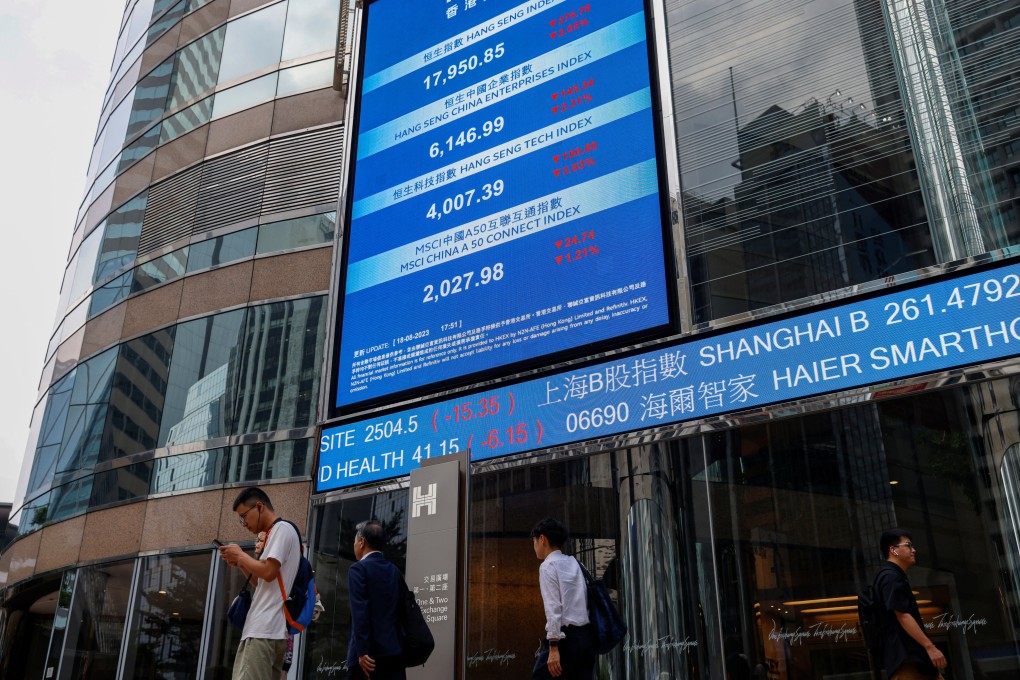Hong Kong stocks slip to 5-week low as Meituan sinks 12% to erase post-Covid rebound amid slowdown warning
- Meituan warned of a slowdown in demand for its services in the current quarter, pressuring margin outlook
- The Hang Seng benchmark has erased all of its gain in November, after losing 15 per cent in the preceding three months

The Hang Seng Index dropped 2.1 per cent to 16,993.44 on Wednesday, the lowest level since October 24. The index earlier fell as much as 2.7 per cent to a 12-month low. The Tech Index retreated 2.3 per cent while the Shanghai Composite Index lost 0.6 per cent.
Meituan tumbled 12 per cent to HK$90.45, a level not seen since March 2020, after the company said food delivery business will cool this quarter. Alibaba Group weakened 2.2 per cent to HK$72.70 and JD.com slid 1.6 per cent to HK$106.60 on concerns rival PDD Holdings is gaining market share at their expense. Baidu dropped 4.1 per cent to HK$115.10 while BYD slipped 3.3 per cent to HK$211.80.
“Hong Kong stocks are being severely punished, one of the worst days this year,” said Dickie Wong, executive director at Kingston Securities. “Investors just lost confidence in this market.”
This week’s setback has erased all the Hang Seng Index’s advance in November and more. The 80-member benchmark index has declined 0.7 per cent, adding to a 15 per cent slump in three preceding losing months, as China’s sluggish economic recovery eroded optimism among investors.
“All the [stimulus] so far have only provided the support on the margins instead of a significant boost,” Caroline Maurer, head of China and Hong Kong equities at HSBC Asset Management, said at a media briefing on Tuesday. Investors will not come back in meaningful way amid doubts about the strength of recovery, she added.